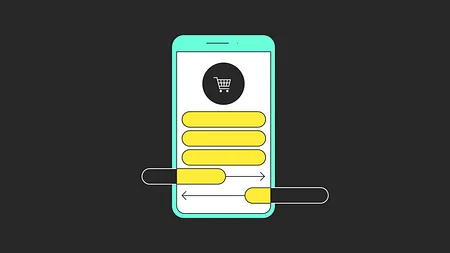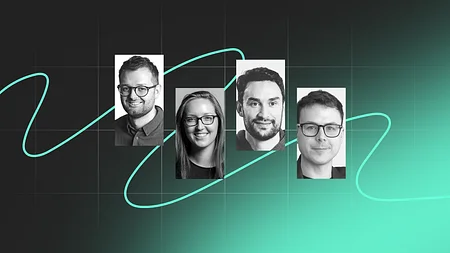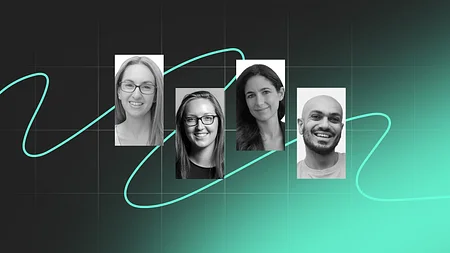Loot CEO Explains How to Create Next-Gen Banking as Your Side Hustle
As a uni student, it drove Ollie Purdue crazy that his bank couldn’t provide him with basic info to help manage his financial life. How much money was he likely to have at the end of the month? Could he cut back on work and have more fun – or did he need to increase his hours to pay the bills? At age 20, he founded Loot to create a better banking experience that used data in a smarter way. In episode 232 of FinTech Insider, Ollie, CEO of Loot, shares the story behind his company, including how he got bank execs to talk to him when he was still in school.
What were you doing at university, and why and how did you come up with this idea?
I studied law at uni – I didn’t want to be a lawyer – and at the time I was studying, I kept getting really frustrated with my bank account. It was just unable to tell me basic things about money, and that’s what a bank’s meant to do, right? So I would never know how little I could work to make it to the end of the month. My goal was to work less and go out more and have more fun on a budget. And my bank wouldn’t tell me, when I got paid, how long that money will last. It wouldn’t tell me where I can cut down on my spending, and it wouldn’t tell me if my spending’s normal.
I used these budgeting apps and they were just so bad. Stuff like direct debits would never come through on a budgeting app, and really basic things wouldn’t match up. So it became really clear that a bank needed to be much smarter with data, and present that in a better way, and that’s kind of where it started.
You started with the idea because banks only gave you a history of what you had spent, rather than a forecast of what you would spend.
Exactly. I worked a part-time job, and every month I got paid a little bit different every time. So I wanted it to say, “Well, based on everything we know about you, it will last you till this date, and you can save this amount of money, and you can go do these things.” I thought that was really simple. So when I started- first of all I needed to work out how to start a business, and how to start a bank, which is even harder. So I wrote a letter to all the bank CEOs, all the big ones in the UK, saying, “I’m going to build a bank, we should probably meet and talk about it.” That went pretty well, I met with senior-level people at most banks.
Why would they meet you? I mean, they won’t meet most technology vendors, why would they meet some upstart student?
I think if you write someone a letter, they’ll probably open it, and then if you send enough letters out, somebody will probably reply. So that was, kind of, the thinking. Some banks completely ignored it. Most banks didn’t, which was surprising.
Who were the guys you met?
I met some people from Barclays, the CEO of Metrobank, and some really high up guys at HSBC. Particularly HSBC and Metro were really helpful.
What was the sort of things that you wanted to know? Because obviously you were studying a law degree, and suddenly you’re thinking that you can open, not just a business, but a bank, when no one else was really doing this.
I went down the route of, “This is a problem that should be solved.” It was less, “I’m going to build one,” that’s what I told them I was going to do, but it was more, “Why aren’t you doing this? What’s stopping you guys from building this product?” And it became clear, with a few of the banks, that it’s not a priority, or it would take too long, or they don’t see the value in it, or, there was loads of different reasons, but there wasn’t, like, “This wouldn’t work,” or, “It’s not a good idea,” it was just, “We can’t do it because of this, but good luck,” kind of thing. So I thought, “It can’t be that hard, I should be able to give it a go myself, so that’s kind of how the business started.
When did you register the company?
June 2014.
What were the next steps?
I was in Bristol still. Once a week, I would have to get up at, like, 3 or 4am, to get to London for 8, 9, every couple of days to go meet people. I did a pre-accelerator that introduced you to people, not in banking, this was in the business world, and at the same time, I was following up with bankers who I’d had a phone call with, or I’d met, through the letters, and then just meeting people that they knew, and it kept growing from that.
You eventually found a partnership with Wirecard, which is in Germany. How did you find them?
I met them at a conference. We were quite lucky that, before then, we’d built this prepaid product, so they already knew who we were.
When did you actually have the meeting with Wirecard, for the first meeting?
The beginning of 2016. After summer 2014, I’d raise a bit of money, moved to London, did an official accelerator programme on how to build a company, and at the same time, tried to work out how to build a financial tech company. Then I found our first two team members, so Kyle and Filip, and then a few others after, so Chris and Jacek, and they joined the team, and we built version one of the product.
We built a prepaid card that took 99 days to build. It was pretty clunky, but it worked, and then by that time, there were seven or eight of us, and then we launched that, got users, got early traction, proved that not only could we build a company, we could build a finance company that looked like a bank, that worked and got users, and that helped us establish ourselves, meet Wirecard, and actually be able to say, “Look what we’ve done, can we do this with you guys?” and then follow on funding and stuff like that.
I guess at some point you must have met the Bank of England and the regulators.
We’re not a bank ourselves, because we use a partner bank, so we aren’t too linked to those guys, but we do meet them.
You’re more an app on a bank, rather than being a bank.
We’ve got to take this step by step, in the way that, we’ve got to prove we can build a product that works and gets users and people love it, and then work on if we want to build a bank, as well.
You’ve been building a presence through word of mouth. So how’s that going?
We went live with this, kind of, version two account, we called it, in December. So far, the response has been really great. We spent a lot of December working on improvements and refinements; January we launched Android; and last week we launched web, as well. So we’re actually on all three platforms, which is really important for us. Now we’re working on feature improvements and then new products, and that’s going really well.
I think our uptake’s been incredible, we’re able to acquire users at 1/100th of what a bank can do.
It’s about a dollar a user, is it?
To get an app download it’s, like, a pound, and then our conversion rates vary. We do full KYC in the app, so the same bank-level KYC that you’d normally have to do in a branch, or in paperwork, we do in an app. So we can get super high conversion rates on that, and keep our acquisition costs low, and keep everything digital.
Who are the people downloading? I mean, what sort of people are using Loot?
80% are between 18 and 24. Average age is around 22.
Your oldest user?
I think around 80. We’ve got 250 people over, I think, it was 65 or 70.
What are they doing with it, I wonder?
We want to make sure that we can build the cleanest interface and the most descriptive product to tell you more about your money, and I think that doesn’t just translate to a younger demographic. It could be anybody, it’s just we focus our attention on a younger demographic because we think they’re more likely to take up a product like ours.
How do you see the future in terms of where you are now to being, what, a global megabank?
We’ve done current accounts pretty well. We’re going to do a few more refinements on that, and add in new products that we think work with our user base, and what our users want. Then it’s expansion into new markets, and then we will come back to the question of whether we should use partner banks or become a bank. It’s kind of a question mark.
It’s an option, effectively.
It’s an option. I think it’s not essential to prove that you can build a great business. We can be profitable without it. You can do everything a bank can do if you’ve got a great banking partner, and I think we’ve established that, so I don’t think we need to go down that route for a while.
There’s lots of challenger banks, so to speak, neobanks starting up in Britain. How do you see the competitive landscape?
There’s, kind of, a challenger bank handbook of all the things you need to go live, but I think everyone’s focusing on different angles of it. Our competition are the big banks, because they have 70% of the market, so we’re not competing to get Starling users, because there aren’t any, compared to the big banks. So I wouldn’t see them too much as competition, because we’re all working towards the same goal. I think it will be really interesting to see how many of us hit the scale we need.
One of the biggest challenges for a challenger bank is actually finding funding, especially if you have a full bank licence, because of capital requirements. You did a funding round last year which was, I think, for a million pounds?
We did two last year. So we did one for £1.5 million, one for £2.5 million. We’re able to stay really lean on our cost base, because we can focus on the product and the marketing and the ops and customer support, and not worry about compliance and risk and that stuff yet. By having a great partner, they do that stuff, and we focus on our bits. So it means the amount of capital we need to prove we’ve got a great product is much lower. When you look at some challengers, they’re raising loads of money and they’ve still got the same question marks we had six months ago: “Can you build a great product? Can you get users?” So we focus on fixing those first, and then working on, “Can we get a banking licence?” or, “Do we want to get a banking licence?”
Is it a continual treadmill of growing the business and then needing more funding?
Yeah, I hope that won’t last forever, but yeah. You’re always working towards the next milestone. We’re really clear, internally, at Loot, what we work for each quarter. So we’re saying to the team, “This is what we need to do to do well in the next quarter, and set ourselves up for success,” and funding falls in line with that. So the ultimate goal is to build a product that a lot of people use, and that will build a great business. So it’s kind of that first, but we always focus our priorities around funding needs and what we need going forward.
You started Loot in 2014 when you were 21?
20.
And you’re now 24?
23.
What do you think you’ll have achieved by the time you’re 30?
That’s a tough one. I created Loot because I thought it was a really interesting problem to solve. I never wanted to be a banker, I never wanted to be a lawyer. The banking industry’s so large, there are so many problems to solve. I think me and the team find that really interesting. We’ve looked at current accounts, and there are so many problems we can fix. So just looking in banking, there are so many things we can do.
What advice would you give to anyone else trying to do something like this?
A lot of people struggle when they start a company because they think there’s, like, a rule, and you do this and you do this and you do this, and then it happens. I started the other way, I was going to start Loot and keep going until I failed. So, I was just going to work it out, and then I started the company, then three months later, we had a bit of investment, so that meant, “Okay, until I run out of cash, I’m going to keep going,” and then we got more money, and it kind of snowballed.
Where did the first investment come from?
An angel investor called Nick Wheeler, who runs Charles Tyrwhitt, the suit company. He’s really great. He’s invested in a few startups where the founders are just out of uni, or still in uni, and gives them a bit of money to help start the company.
If I summarise, first, come up with a really good idea, and focus on the idea, and then work the network around that idea until you find the right connections.
Focus on the problems you want to solve. A lot of people get it mixed up. When you start a company it’s the execution of the idea, not the idea itself. A bank isn’t new. I just bet that my execution of a bank account would be better than somebody else’s. It’s not that what I thought of was new in any way, because it’s all been done before, for hundreds of years. So I think, when starting a company, it’s all about how you do the idea, and that’s unique to you and your team, and then just keep going until you fail.


